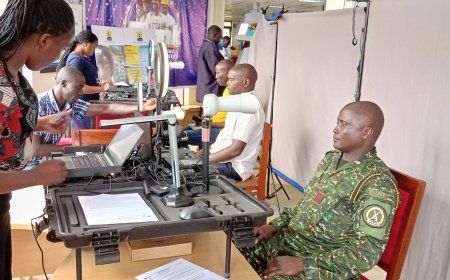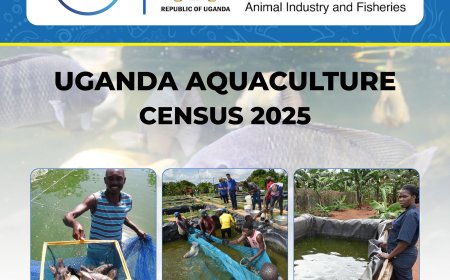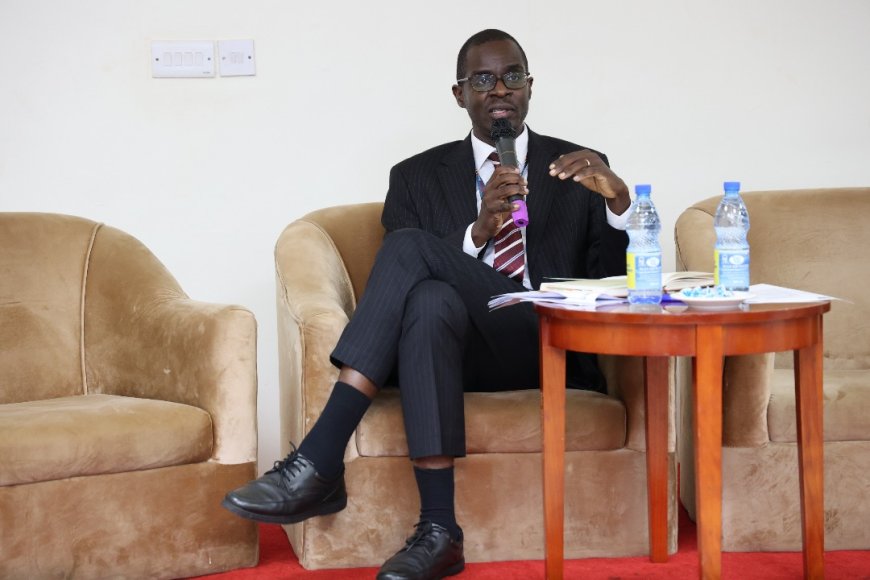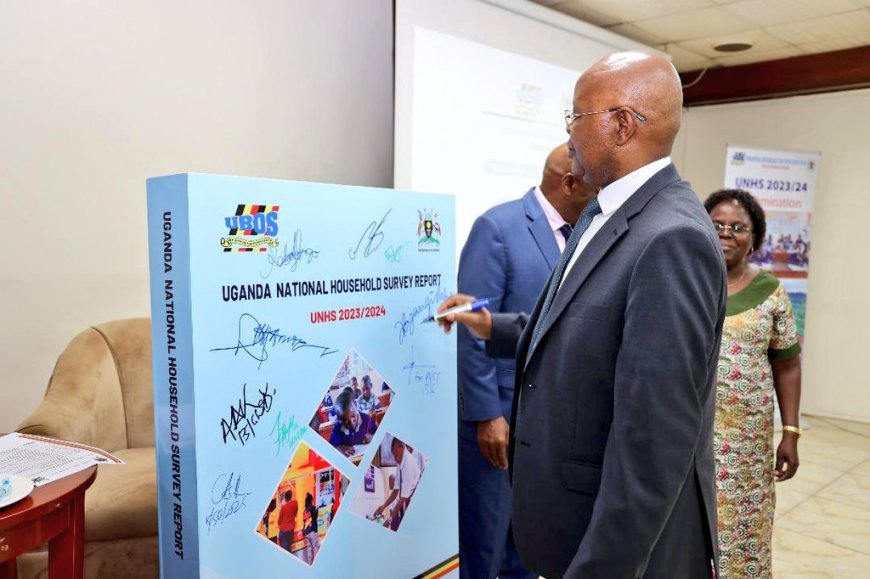New Household Survey Reveals Decline in Poverty and Inequality in Uganda
Mr. Enyimu emphasized that the survey’s findings are a strong indication that Uganda’s macroeconomic stability is yielding real benefits for ordinary citizens.
The Uganda Bureau of Statistics (UBOS) has officially disseminated the findings of the Uganda National Household Survey (UNHS) 2023/2024, shedding light on key indicators of welfare, poverty, inequality, education, health, and economic participation across the country. The dissemination event, held at Hotel Africana, drew national stakeholders, policy experts, and development partners, who all emphasized the critical role of credible data in shaping inclusive, effective national policies.
Mr. Joseph Enyimu, Commissioner for Economic Development Policy & Research at the Ministry of Finance, Planning, and Economic Development,
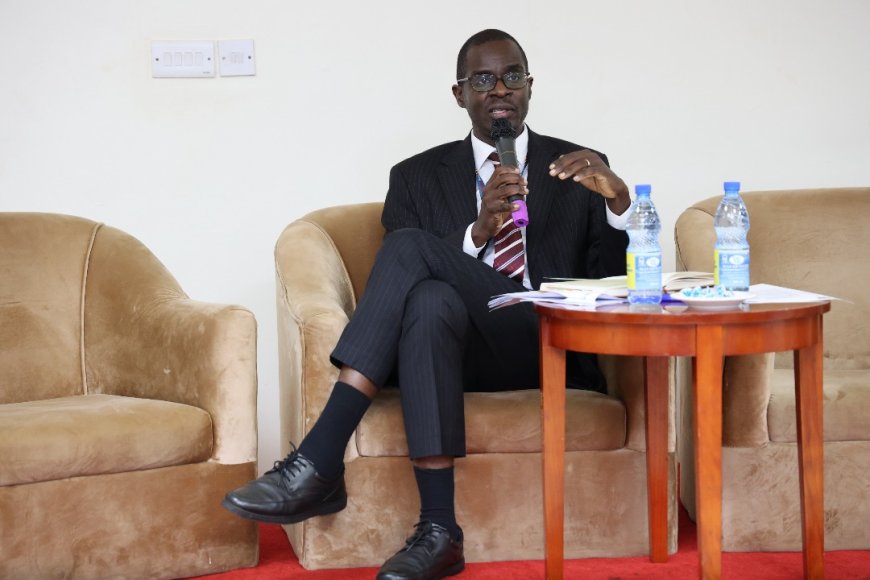
represented the Permanent Secretary and Secretary to the Treasury (PS/ST). He lauded UBOS for producing high-quality, policy-relevant statistics, describing the UNHS as a “continental benchmark” crucial for accountability, strategic planning, and macroeconomic decision-making.
Mr. Enyimu emphasized that the survey’s findings are a strong indication that Uganda’s macroeconomic stability is yielding real benefits for ordinary citizens. “Rising household and per capita consumption outpacing inflation signals tangible welfare gains,” he stated. “This demonstrates how macroeconomic management is directly linked to improved household living conditions.”
Addressing concerns about Uganda’s rising public debt, Mr. Enyimu noted that outcome-based assessments are more important than mere debt figures.“We don’t measure spending by shillings disbursed, but by lives improved,” he declared, pointing to evidence from the UNHS showing that poverty and inequality have declined significantly between 2019/20 and 2023/24.
He stressed that both concessional and non-concessional financing are yielding dividends in terms of service delivery and human development. “The numbers affirm that public investment is delivering value for money, especially in underserved rural regions,” he added.
Mr. Enyimu also challenged the perception that Uganda’s growth benefits only a select few. “The UNHS challenges that view—it shows that inclusive growth is not a theory, it is visible and underway. More Ugandans, particularly in rural areas, are participating in and benefiting from the economy,” he said.
Reaffirming the ministry’s commitment, he stated: “With the right data and strategy, no Ugandan should be left behind. We are committed to regional equity, evidence-based policymaking, and community-led development.”
Meanwhile, in a panel discussion, Dr. Sarah Ssewanyana, Executive Director of the Economic Policy Research Centre (EPRC), echoed the importance of granular data in tackling inequalities and informing responsive public policy. She called on government to “focus more on lower levels, not just national aggregates,” particularly in the fight against poverty.
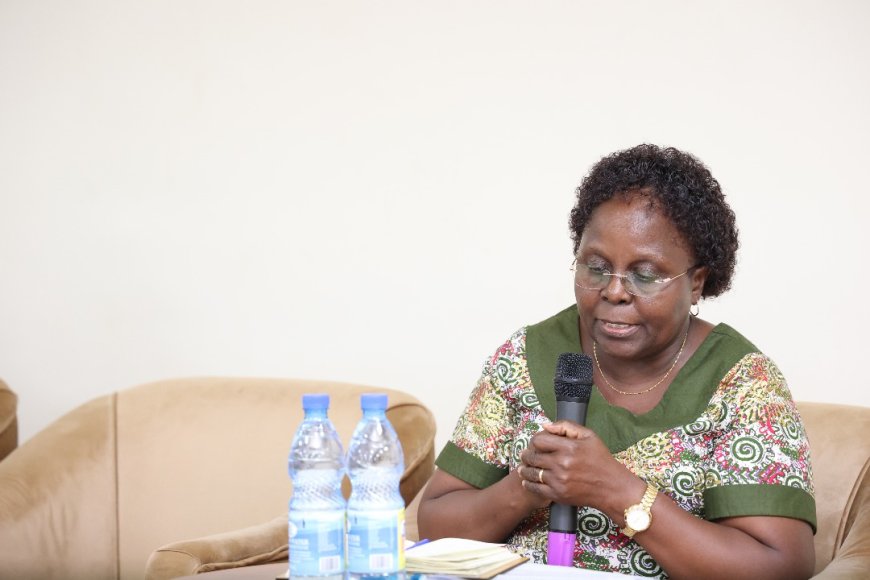
Dr. Ssewanyana highlighted challenges in the education sector, noting that although gross enrollment exceeds 100%, it reflects systemic inefficiencies. “Many children are either underage or overage, indicating issues of repetition, delayed entry, or irregular attendance,” she said. Despite schools reopening post-COVID, enrollment has yet to return to pre-pandemic levels. “We must go beyond national averages and ask: who is missing from school, and why?” she urged.
On health, Dr. Ssewanyana pointed to worrying trends, such as an increase in self-medication and a decrease in the proportion of Ugandans living within 10 kilometers of a health facility. “The sector isn’t bleak, but these patterns demand deeper investigation and targeted interventions,” she emphasized.
Regional Disparities Must Be Addressed
While acknowledging the national decline in poverty and income inequality, Dr. Ssewanyana warned that regional disparities remain hidden beneath the averages. “To meet our poverty reduction targets, we must disaggregate the data and set specific goals for rural, urban, and sub-regional areas,” she advised.
In her closing remarks, she delivered a powerful reminder: “Data isn't just about numbers. It's about truth, accountability, and opportunity.” She called on policymakers to harness the insights from the UNHS 2023/24 to inform equitable budgeting, planning, and service delivery, aimed at unlocking Uganda’s full development potential.
The UNHS 2023/2024 reaffirms the power of data-driven policymaking in achieving Uganda’s Vision 2040 and the Sustainable Development Goals (SDGs). As Uganda continues to navigate complex development challenges, this comprehensive survey serves not only as a diagnostic tool but also as a compass for inclusive, evidence-based transformation.
UBOS has once again positioned itself as a credible institution supporting national progress through facts, not assumptions. The challenge now lies in translating these insights into action that touches every Ugandan, regardless of their region, gender, or socio-economic status.


























































































